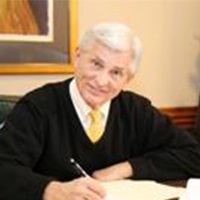Tipton Felony Lawyer, Tennessee
Not enough matches for Tipton Felony lawyer.
Below are all Tipton Criminal lawyers.
William Dennis Massey
✓ VERIFIEDCriminal, White Collar Crime, Misdemeanor
William D. Massey has been practicing law for over thirty-one years, over twenty-eight of those years in the Memphis area. His area of expertise is in... (more)
FREE CONSULTATION
CONTACTChesney Falk McAfee
Criminal, Federal Appellate Practice, Federal Trial Practice, State Trial Practice
Status: In Good Standing
FREE CONSULTATION
CONTACTFREE CONSULTATION
CONTACTKasey Ann Culbreath
Juvenile Law, Federal Appellate Practice, Family Law, Criminal
Status: In Good Standing
Kasey Culbreath
Juvenile Law, Federal Appellate Practice, Family Law, Criminal
Status: In Good Standing
Ryan Thompson
Criminal, Civil Rights, Federal Appellate Practice, State Government
Status: In Good Standing Licensed: 11 Years


